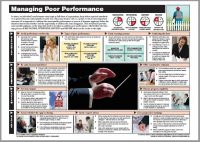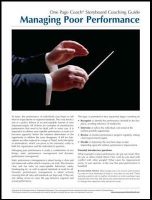I’m sure you see the similarities and are wondering if that photo above is “Gary”; honestly, it is NOT me!.
Here are three strategies to develop your coaching muscle.
STRATEGY #1: Work with a coach mentor
STRATEGY #2: Receive feedback
STRATEGY #3: Learn with and from other coaches
Let me unpack the “Why?” before the “How?”
Why is it important to sharpen my coaching skills? I am assuming if you are reading this blog that coaching is a muscle you exercise on a regular basis to develop people. Here are three contexts that ministry leaders flex their coaching muscle:
- Local Church: Pastors and church planters developing leaders in a local church
- Network: Leaders mobilizing disciplemakers & church planters within a neighborhood, city, state, region or nation
- International: Leaders who catalyze multiplication movements across borders
If you coach in one or more of the three categories above, then you make coaching a priority in your schedule; and developing your coaching skills is a necessity!
You understand, to extend your reach that you must empower and coach. This is why coaching is an essential muscle that needs to be exercised. It is not a management tool. Coaching is an empowerment tool!
How can I sharpen my coaching skills? One of the most fruitful experiences of my development as a coach was was to work with a mentor coach. In fact, this last year I worked with two different mentor coaches, one female (Kim) the other male (Sam). “How was this helpful?” you ask.
- Reason #1: Fresh insights
- Reason #2: New perspectives
These caused me to rethink my process. Plain and simple.
If you want to develop your coaching muscle – first, find a mentor coach. Someone who is a step ahead. Or has a different approach. Or new perspective. Find someone that can challenge you in areas that will help you empower disciple-makers and leaders from the grass-roots to the leader of a multiplication movement.
InFocus is excited to give you an opportunity to sharpen your coaching effectiveness. The launch of the first Developing Coaching Excellence Collective is September 2018. This is uniquely designed to support the development of leaders who coach disciple-makers, pastors, church planters and multiplication leaders.
 Let me introduce my co-facilitator, Mukesh Azad. I met Mukesh in 2016 while conducting a coach training workshop alongside a Disciple Making Movement training track. One evening over dinner we discussed his vision to establish training centers to send out entrepreneurs to start businesses to fuel disciple-making and church planting movement; in some of the most difficult regions of the world. As he scribbled his vision on a paper napkin I sensed the Lord had us meet for a particular purpose. I am partnering with Mukesh to fuel this shared-vision in India and provide mentor coaching to leaders in the US. Read more about Mukesh – click here, then go to the bottom.
Let me introduce my co-facilitator, Mukesh Azad. I met Mukesh in 2016 while conducting a coach training workshop alongside a Disciple Making Movement training track. One evening over dinner we discussed his vision to establish training centers to send out entrepreneurs to start businesses to fuel disciple-making and church planting movement; in some of the most difficult regions of the world. As he scribbled his vision on a paper napkin I sensed the Lord had us meet for a particular purpose. I am partnering with Mukesh to fuel this shared-vision in India and provide mentor coaching to leaders in the US. Read more about Mukesh – click here, then go to the bottom.
Since certification is a priority for some, the 10 hours of the Developing Coaching Excellence Collective are applicable to the International Coach Federation, Coach Mentor Requirement for the:
- Associate Certified Coach – ACC
- Professional Certified Coach – PCC
- Master Certified Coach – MCC.
If this is a need you have and would like more information, please contact me direct – click InFocus.
Here are a couple of related resources

LEARNING STYLES: SKILL BUILDER BOOKLET





























